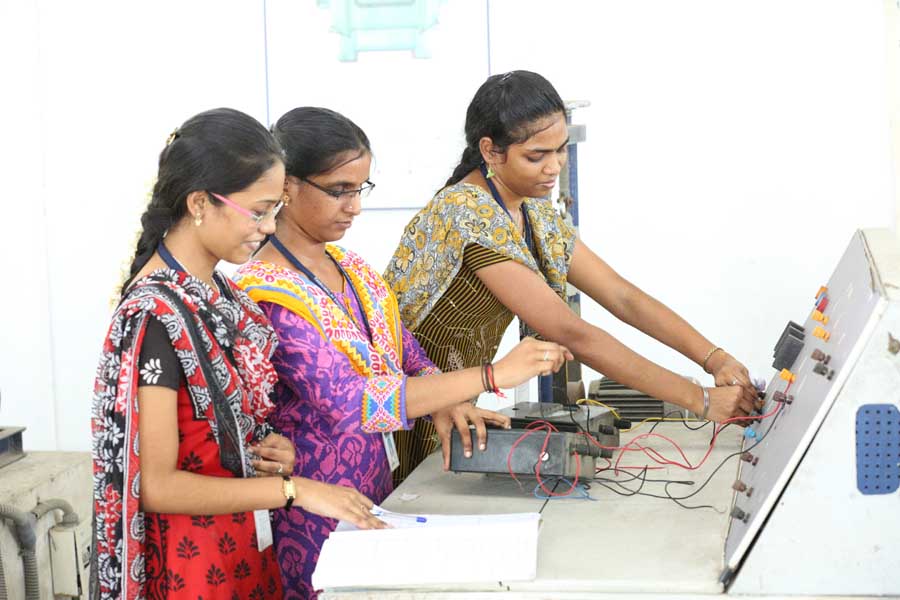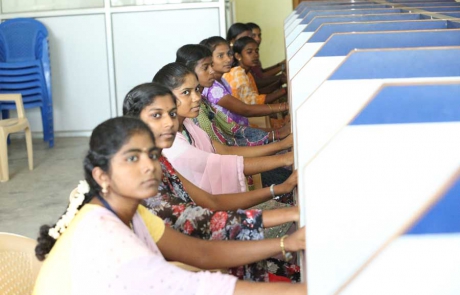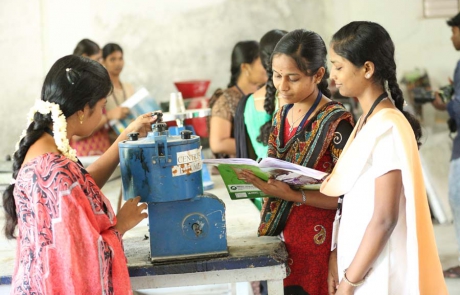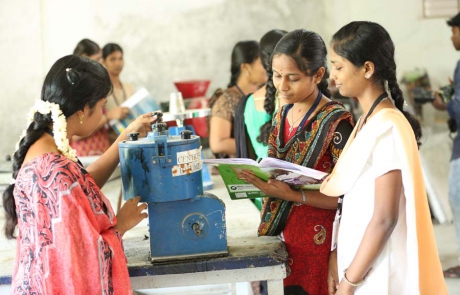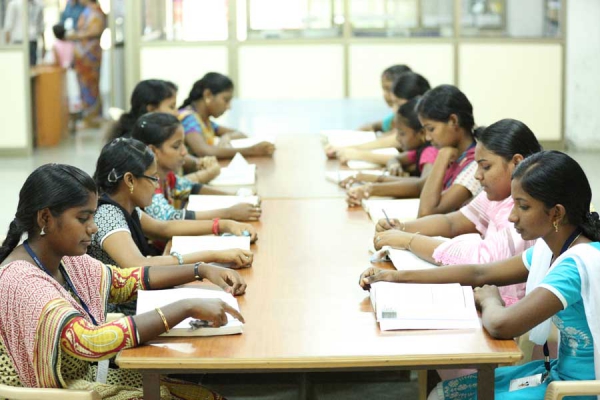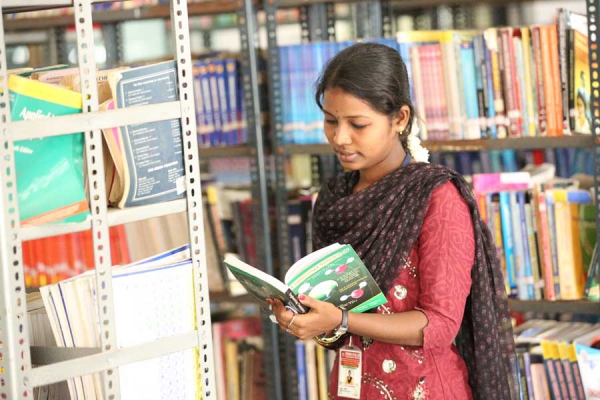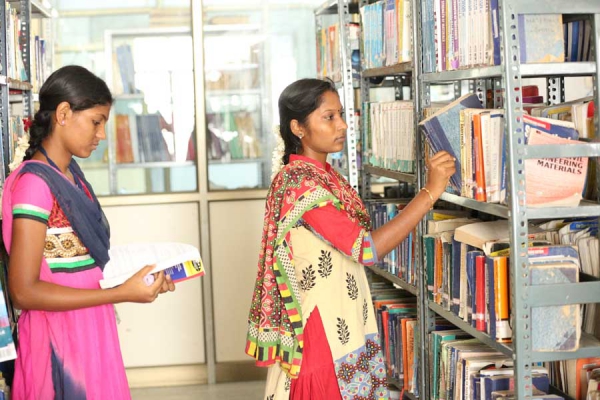- Course Overview
Duration
4 Years (8 Semesters)
Accreditation
AICTE Approved
Intake
24 Students
- Introduction – Engineering Design Department
The Engineering Design Department at Thirumalai Engineering College (TEC) is a vital and growing part of the institution, offering a comprehensive undergraduate curriculum aligned with Anna University guidelines. The department is dedicated to delivering high-quality education through both theoretical lectures and practical, lab-based learning.
Classrooms are equipped with SMART Boards, enabling interactive learning experiences and encouraging active engagement between faculty and students. The department provides hands-on training through well-equipped labs, especially in areas like CAD/CAM, where students gain practical experience in design, measurement, and data analysis.
With a strong focus on academic excellence, student development, and career success, the department fosters a dynamic learning environment. The college remains committed to nurturing future engineers with the knowledge, skills, and confidence to meet industry demands.
Prospective students can expect a student-focused atmosphere and a well-rounded educational journey. The department welcomes inquiries and looks forward to supporting students in achieving their academic and professional goals.
- Department Activities
PROGRAMME EDUCATIONAL OBJECTIVES
- Have a high level of technical competency combined with research and problem-solving skills to generate innovative solutions in mechanical engineering or related areas.
- Be able to communicate effectively to various stakeholders and practice their profession with high regard to societal needs, diversity, constraints in the professional workplace, and ethical responsibilities.
- Continuously updating themselves in areas and technologies that are relevant to their career, participate in personal development, and increasing their understanding of matters that are current and important to society in a national and international context.
- Solve complex technical problems and /or design systems that are useful to society by applying the fundamental scientific principles that underpin the mechanical engineering profession.
- Graduates are able to undertake lifelong learning and adapt to the changing environment.
PROGRAME OUTCOMES (POs)
- Engineering knowledge: Apply the knowledge of mathematics, science, engineering fundamentals, and an engineering specialization to the solution of complex engineering problems.
- Problem analysis: Identity, formulate, review research literature, and analyze complex engineering problems reaching substantiated conclusions using first principles of mathematics, natural sciences, and engineering sciences.
- Design/development of solutions: Design solutions for complex engineering problems and design system components or processes that meet the specified needs with appropriate consideration for public health and safety, and the cultural, societal, and environmental considerations.
- Conduct investigations of complex problems: Use research-based knowledge and research methods including design of experiments, analysis, and interpretation of data, and synthesis of the information to provide valid conclusions.
- Modern tool usage: Create, select, and apply appropriate techniques, resources, and modern engineering and IT tools including prediction and modeling to complex engineering activities with an understanding of the eliminations.
- The engineer and society: Apply to reason informed by the contextual knowledge to assess societal, health, safety, legal and cultural issues and the consequent responsibilities relevant to the professional engineering practice.
- Environment and sustainability: Understand the impact on the professional engineering solutions in societal and environmental contexts, and demonstrate the knowledge of, and need for sustainable development.
- Ethics: Apply ethical principles and commit to professional ethics and responsibilities and norms of the engineering practice.
- Individual and teamwork: Function effectively as an individual, and as a member or leader in diverse teams, and in multidisciplinary settings.
- Communication: Communicate effectively on complex engineering activities with the engineering community and with society at large, such as, being able to comprehend and write effective reports and design documentation, make effective presentations, and give and receive clear instructions.
- Project management and finance: Demonstrate knowledge and understanding of the engineering and management principles and apply for the set one‘s own work, as a member and leader in a team, to manage projects and in multidisciplinary environments.
- Life-long learning: Recognize the need for, and have the preparation and ability to engage in independent and life-long learning in the broadest context of technological change.
PROGRAM SPECIFIC OUTCOMES (PSOs)
- Mechanical Engineering Program Leaners will be able to
- Flexible choice based credit system
- The learner can select the course he is interested to study during a semester. The course can be opted by the learner, with the prerequisite courses completed by the learner. For courses that do not have prerequisites, the learner can study the course in any semester, whenever it’s offered.
- The learner should have earned the credits in each category namely HS, BS, ES, PC, PE, OE, MC to become eligible for the award of the degree.
- Career Opportunities
Design Engineer
CAD tools (AutoCAD, SolidWorks, CATIA), GD&T, 3D modeling, product design, prototyping
CAE Analyst
Finite Element Analysis (FEA), ANSYS, HyperMesh, structural analysis, problem-solving
R&D Engineer
Innovation, material science, product development, simulation tools, experimental testing
Mechanical CAD Specialist
2D/3D drafting, CAD software expertise, design documentation, attention to detail



